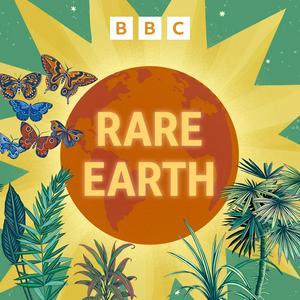150 years ago the British research ship Challenger returned from a three and a half year voyage that changed the world. Plucking species from every ocean, at depths never explored before, the Challenger kick-started the science of oceanography and paved the way for a world connected by undersea communication cables.
To celebrate the Challenger's legacy, Helen Czerski and Tom Heap are at the world's biggest ocean science conference in Glasgow to ask what the next 150 years may hold. Is the age of the human explorer over, replaced by robots and DNA sampling, or is there still a space for wonder as we explore the depths of our planet's oceans?
With Tom and Helen at the AGU Ocean Sciences Meeting are three top ocean explorers - Kirstie McQuaid from Nelson Mandela University in South Africa, Murray Roberts of Edinburgh University and Sofie Spatharis of Glasgow University.
Producer: Alasdair Cross
Assistant Producers: Toby Field and Rebecca Rooney
Rare Earth is produced in collaboration with the Open University


